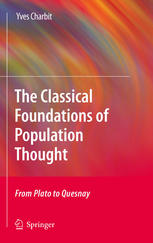

Most ebook files are in PDF format, so you can easily read them using various software such as Foxit Reader or directly on the Google Chrome browser.
Some ebook files are released by publishers in other formats such as .awz, .mobi, .epub, .fb2, etc. You may need to install specific software to read these formats on mobile/PC, such as Calibre.
Please read the tutorial at this link: https://ebookbell.com/faq
We offer FREE conversion to the popular formats you request; however, this may take some time. Therefore, right after payment, please email us, and we will try to provide the service as quickly as possible.
For some exceptional file formats or broken links (if any), please refrain from opening any disputes. Instead, email us first, and we will try to assist within a maximum of 6 hours.
EbookBell Team

5.0
90 reviewsWhereas the history of demography as a social science has been amply explored, that of the construction of the concept of population has been neglected. Specialists systematically ignore a noteworthy paradox: strictly speaking, the great intellectual figures of the past dealt with in this book have not produced demographic theories or doctrines as such, but they have certainly given some thought to population at both levels. First, the central epistemological and methodological orientation of the book is presented. Ideas on population, far from being part of the harmonious advancement of knowledge are the product of their context, that is evidently demographic, but also economic, political and above all intellectual. Then the ideas on population of Plato, Bodin, the French mercantilists, Quesnay and the physiocrats are examined under this light. The last chapter addresses the implicit philosophical, economic and political issues of population thought.